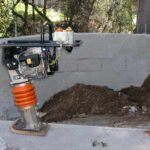This buying guide will help you understand manufactured home warranties. Learn about the different types of manufactured home warranties available and what is covered under a manufactured home warranty.
When buying a manufactured home, you’ll find a variety of different warranties. Be sure you know what each one is. Warranties may come from the home installer, retailer, manufacturer, and the appliance manufacturer. Review and compare them carefully before making your purchase.
Be sure to find out the answers to these questions:
* What different types of warranties come with the house?
* What is the coverage of each warranty? What problems are not covered?
* Are transportation and installation covered by the manufacturer’s written warranty? If not, do other written warranties cover these?
* What is the duration of each warranty?
* Who will offer warranty services and where will they be performed?
* Does the manufacturer offer extended warranties? If so, how much do they cost and what do they (and don’t they) cover?
Manufacturer warranties generally cover substantial defects in the following areas:
* Appliances installed by the factory, which may also be covered by unconnected appliance manufacturer warranties.
* Plumbing, heating ,and electrical systems installed by the factory.
* Workmanship of the structure.
Manufacturer warranties do not cover:
* Faulty installation and maintenance.
* Accidents.
* Normal aging and wear.
* Unauthorized repairs.
* Owner negligence.
Be sure to confirm that the person who carries out the installation follows the manufacturer’s instructions. Also, make sure the manufacturer’s repair and maintenance instructions (in the homeowner’s manual) are adhered to, to keep your warranty in effect.
While your retailer will carry out most warranty service, the manufacturer is fundamentally responsible for certifying the repairs.
Implied warranties
On top of written warranties, you may also be protected by certain “implied warranties.” Implied warranties are unspoken, unwritten promises that a given product is fit to be sold and used for its intended purpose.
For example, a manufactured home should be fit to be sold and lived in. Implied warranties can protect you even if no written warranty exists. Many states allow sales that exclude implied warranties altogether (“as is” sales). But some states don’t allow sellers to limit or exclude implied warranties. Check with your regional consumer protection agencies to learn more about implied warranty protections. If you’re purchasing a previously owned home, inquire as to whether it’s being sold with a warranty or “as is”-with no implied or written warranty.
The retailer’s warranty
Retailers may offer a warranty on a home. Demand to see the retailer’s warranty in writing before purchasing a home. Many retailer warranties are different, but most include:
* The terms included in the warranty.
* The terms that you must maintain to keep the warranty in effect.
* What you can realistically expect from the retailer.
* That the home has been installed in accordance with the manufacturer’s installation instructions and local guidelines.
Retailer warranties don’t cover problems that arise from:
* Unauthorized repairs.
* Owner negligence.
* Failure by the owner to provide notice for service.
Appliance warranties
Your home appliances also have warranties that may come with the use and care manuals from the manufacturer, or be included in the manufacturer’s warranty, as required in some states. Most of the time, you’ll receive service from a local service center. However, if warranty service isn’t available, contact your retailer for alternative measures.








 Don Vandervort writes or edits every article at HomeTips. Don has:
Don Vandervort writes or edits every article at HomeTips. Don has:



